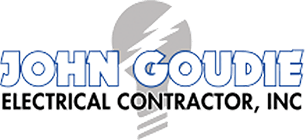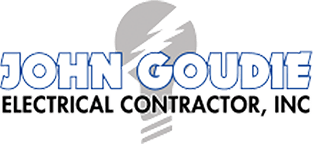Emergencies like fires, carbon monoxide leaks, and long-term power outages can happen at any time. To protect your family, your home, and your possessions, it is important to install the appropriate wiring to support devices like smoke alarms, carbon monoxide detectors, and backup generators. Not only will this provide increased safety, but it can also help you earn a discount on your home insurance policy.
Installing & Wiring Emergency Devices
For the best protection during emergencies, you should consider installing a complete home security system, a sprinkler system, and an array of smoke detectors, heat detectors, and carbon monoxide detectors. It is also a good idea to install a backup generator to keep your home comfortable and safe during longer power outages that result from storms and other disasters. Here is how each of these devices should be installed and wired:
- Security system – A home security system can not only protect your home during a break-in, but also during fires, carbon monoxide leaks, and more. It can automatically alert the authorities during an emergency and it responds to signals from door and window sensors, smoke detectors, heat detectors, carbon monoxide detectors, and the sprinkler system’s water flow detectors. A security system will require a connection to the home’s electrical system, a phone line, and each sensor.
- Smoke detectors – Permanently-installed 120-volt AC and low-voltage detectors will require a single-gang box or ring at the installation location, plus either an AC or a low-voltage cable for power. Low-voltage smoke alarms can work with your security system to summon help automatically during an emergency and require four-conductor fire wire ranging from 18 to 22 AWG. It is best to install an array of low-voltage smoke detectors, with one near each bedroom and living area.
- Heat detectors – Useful for places where smoke detectors would create too many false positives, such as kitchens or furnace rooms, heat detectors monitor temperature and will send an alarm signal when it rises too quickly. These also require a single-gang box or ring at the mounting location, plus a four-conductor fire wire.
- Carbon monoxide detectors – An invisible gas with no taste or smell, carbon monoxide can be deadly and is typically produced by stoves, furnaces, water heaters, and other fuel-burning appliances that are not operating properly. Carbon monoxide detectors require a single-gang box and a four-conductor fire wire. One detector should be installed near each bedroom and on each level of the home.
- Water flow detector switches – Located near the supply or riser pipe for the sprinkler system, this sensor provides a signal to the security system when the sprinklers are activated, alerting authorities. It requires a four-conductor fire wire for power and communication.
- Backup generator – During a power outage, improperly connected generators could energize the lines that supply your home, endangering utility workers. This condition is called “backfeeding” and can be avoided by having a transfer switch professionally installed. A transfer switch disconnects your home from the utility grid before connecting generator power. Manual transfer switches must be manually connected to the generator and turned on to operate, while automatic transfer switches require no user intervention. A professional electrician can help you determine which switch is compatible with your generator and which circuits should be powered during an emergency.
Electricians in Southern Maryland
At John Goudie Electric, we can help prepare your home for emergencies with backup generator installations, transfer switch installations, and wring installations for smoke, heat, water flow, and carbon monoxide detectors. Since 1987 we have been offering quality residential and commercial electrical services throughout Southern Maryland, including new wiring installations, electrical repairs, panel upgrades, generator installations, and more.
To install a backup generator in your Southern Maryland home, contact us online to request an appointment.


